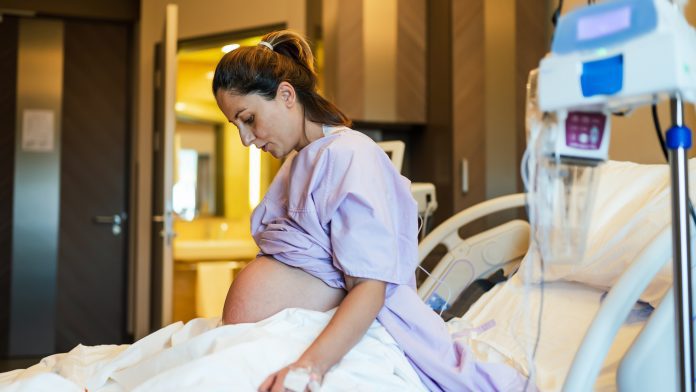
Researchers explore whether antibiotics before a caesarean birth can increase the risk of early childhood conditions such as asthma.
Caesarean birth is common, with a third of children born in the UK through this method. It is a major operation to deliver your baby through a cut made in your stomach and womb. This birth method leaves women at an increased risk of infection, and preventive antibiotics are prescribed to combat this. Consequently, if the antibiotic is given before clamping the baby’s cord, it can cross the placenta and affect the baby’s gut microbes.
The collaborative effort from the Universities of Birmingham and Warwick investigated whether there is a clear link between preventive antibiotics and allergy-related conditions. The findings are published in The BMJ.
Allergy-related conditions in young children
Previous studies have found a link between the composition of bacteria and other organisms in the baby’s gut and the development of allergy-related conditions such as eczema. However, researchers from the Universities provide further evidence to support preventive antibiotic use before caesarean birth as per recommendations from National Institute for Health and Care Excellence (NICE).
The collaborative team compared the risk of allergy-related conditions in the first five years after birth in children born by caesarean birth. They used health records from several million children born between 2006 and 2018, contained in UK-wide healthcare databases.
Preventive antibiotics before caesarean birth are safe
The findings suggest that the policy of preventative antibiotics before caesarean birth does not affect the risk of these early childhood conditions developing.
Lead author Dr Dana Sumilo, based at the University of Warwick, said: “Maternal infections, such as wound infection, can be a risk in the period immediately after birth. Preventative antibiotics are of most benefit to the mother if given before the caesarean section is carried out. There is no known harm from these antibiotics to the babies born by caesarean birth and our findings also suggest no effect on the risk of health conditions, such as asthma and eczema in early childhood.”
Professor Andrew Shennan, Clinical Director, NIHR Clinical Research Network South London, said: “These promising new findings provide more evidence that preventative antibiotics substantially improve health outcomes for mothers and their babies before caesarean section.
“This arms clinicians with key evidence enabling them to ensure antibiotics are used wisely and at the optimum point for the most effective treatments.”










